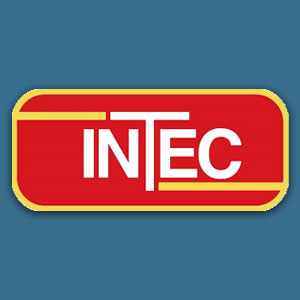Winter’s coming. It’s already heating season. So how do you save money on heating costs? You’ve got to own your heat. Simple as that. You’ve paid for all that warm air already, so it doesn’t make much sense to waste it now. According to North American Insulation Manufacturers Association (NAIMA), they estimate that roughly 90% of existing U.S. homes are under-insulated. Are you sure you aren’t one of them?
Air Sealing And Proper Insulation
A simple enough premise – it’s the application that gets complicated. We (and most building science experts) strongly recommend air sealing and insulation as high priority measures to make your home use less energy, make you more comfortable, and make the planet happy.
Air sealing can sometimes be done by a competent do-it-yourself-er, but insulation is trickier. It generally has to be done by a contractor, and for the most part can only be installed by getting inside walls that are now closed up. And unlike air sealing flaws, which you can often see just by scanning your basement walls, the quality of insulation in your house is, for the most part, difficult to assess. (Thankfully, the attic, which is the most critical spot for insulation, is the easiest to access).

What Are The Different Types Of Insulation?
- Cellulose insulation: Cellulose is the most cost effective solution in improving energy efficiency in existing homes. Cellulose is 82% to 85% recycled paper manufactured into an eco-friendly insulation product. A primary feature of cellulose is its ability to stop air infiltration by densely free-flowing into cavities and tight spots, filling cracks and covering seams.
- Spray foam insulation: Icynene is a self-expanding foam insulation that provides superior performance in energy efficiency, air quality and sound control. It is a liquid that expands in seconds up to 100 times its original volume, sealing all gaps and crevices. This particular insulation provides a superior alternative to other insulation types and ensures a strong air barrier. In addition, Icynene provides exceptional sound control and when applied to inside walls, reduces the noise from plumbing stacks, laundry rooms and entertainment centers.
- Fiberglass insulation: Fiberglass is the most commonly found home insulation. Fiberglass is made up of very fine pieces of glass fibers. It is found in two forms: blanket and loose fill.
- Mineral wood insulation: Mineral Wood comes in two different options: rock wool and slag wool. Both are man made materials and contain about 75% recycled matter.
- Natural fiber insulation: Natural fiber insulation includes cotton, sheeps wool, straw and hemp.
This list includes the most widely used insulation types today, but certainly doesn’t include every single insulation type ever used. There are a number of types of insulation that are no longer considered safe and are not utilized by reputable installers. You can view a more inclusive list here.
How Do You Know If Your Insulation Was Installed Correctly?
This is an important point, because even if all insulation is created equal (a separate discussion), that doesn’t necessarily mean that all insulation is equally well installed – which, in this case, may be just as important. Insulation only works when it’s installed to specifications, and when it’s in good shape. So even if there is insulation in your walls, even if you’ve seen it or paid for it or been told by your real estate agent that it’s there, it may be sleeping on the job.
The best way to assess the quality of otherwise “invisible” insulation is a home energy audit from a qualified home energy auditor with an infrared scanner, which will reveal where there are problems with your insulation.
Another reason why a home energy audit is really a problem-solving exercise. After you have it done, you’ll know where the issues are. Without it, your home might just remain an unsolved mystery… The Case of the Cold House and the Disappearing Dollars.
Installation Services Offered By Intec
- Attic insulation
- Basement insulation
- Wall insulation
- Crawlspace insulation
- Blown in cellulose insulation
- Spray foam insulation
- Air sealing
We’d be happy to talk with you about the best insulation product for your home or business, and to accomodate the needs of your project. Contact us today for a free phone consultation!



